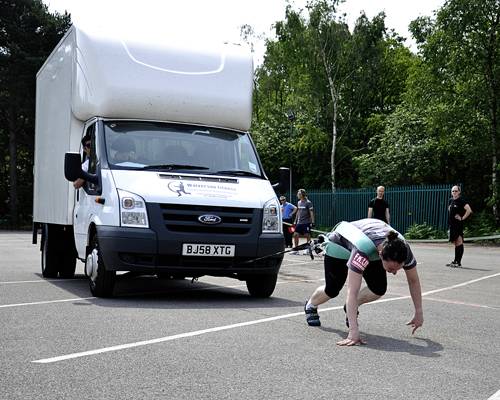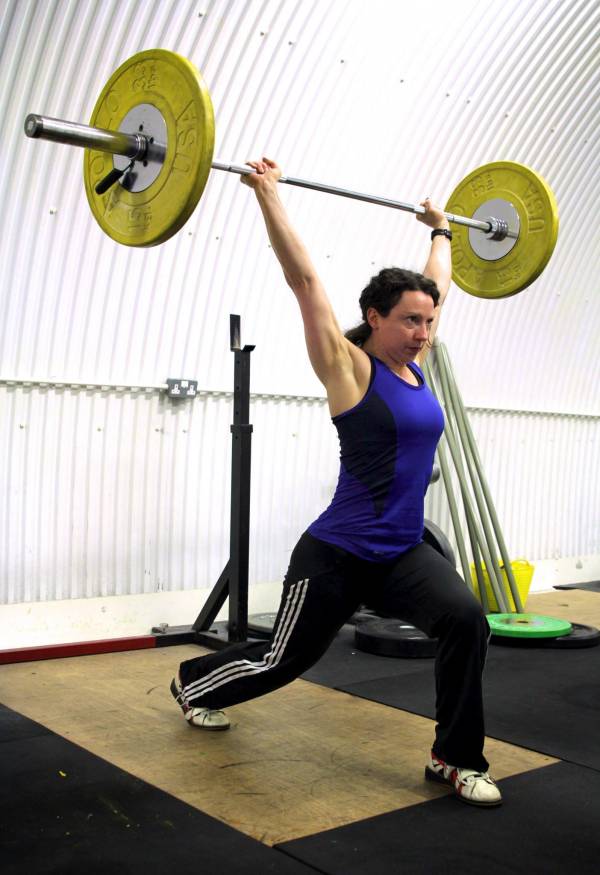My approach to strength training has been shaped largely by my experiences. There really is no better place to learn than under the bar. I don’t intend this to sound fatuous. My background is book learning and as a young adult I was very successful academically.
I have a degree in English Literature from Cambridge University and if you’d told me twenty years ago that I would end up building a career and a successful business in such a practical, visceral realm as strength training, I’d have thought you were mad. Whenever I wanted to know something, I turned to a book – that’s just the way I was brought up.
I’ve read many of the classic texts on strength: Supertraining, Science and Practice, and so on. But I’d take one session with a good coach over a book any day. I learned more in a single training session with Dave “Bulldog” Beattie, legendary owner of Genesis Gym and trainer of some of the strongest people in the world, than in the entirety of Internet articles I’ve read on powerlifting over nearly a decade. Strength is a physical pursuit; don’t forget that. It’s not pursued in books or on the Internet, although they can help.
So here are some of the things that my experiences have taught me about strength:
1. Raising Expectations
I had no idea what strength really was until I tried to do a push up. Back around 1998, I was working for a dotcom start-up. I had just joined a gym to lose a bit of weight, as late nights and a bad diet were giving me some pudge. I was in an aerobics class and at the end of the class we had to do push ups. Proper, full push ups.
This was my very first strength challenge. I was excited and motivated about it in a way I hadn’t been about running, or dancing, or the other activities I’d been trying. Within weeks I had gone from flopping around on my belly to doing full push ups. I tell the full story here, including how my inspirational aerobics teacher got his whole class doing push ups.
What my instructor did was raise my expectations of what I could achieve. It has set the tone for my entire strength career and I am now well known for raising the bar for women’s weight training and having high expectations of all my clients, male and female. I even compiled a list of strength standards back in 2008 to get the message out about what kind of strength goals women should be setting for themselves.
2. Strength Training Should Be Primarily About Strength
Say what? What I mean is that strength training has been co-opted into fat-loss training, functional training, this training, that training – and along the way, people have forgotten that it is primarily about getting stronger. I’m not a strength training purist, but it is surprising the number of people who don’t apply simple principles like progressive overload, or track their strength in any measurable way. Some people don’t even know what the weight on the bar is.

I’ve had many a-ha moments in my strength journey, but probably not so many as when I got into strongman training about five years ago. Although I’d played around with all sorts of exercises and movements, I’d always associated big heavy lifting with the power lifts – squat, deadlift, and so on. So strongman, with its variety of events and myriad ways to shift big weights around, allowed me to see strength in very different ways. The challenge of carrying and loading, for example. Flipping tires. Pulling a truck. (By the way, the picture of me pulling a truck is still the one that gets the best reaction from audiences!)
But these days, strongman training is seen and practiced by many as glorified cardio. Perhaps it’s the classicist in me, but I see it differently. The real heritage of strongman is the world of myth and legend, of Atlas, Milo, Hercules. Immense challenges, tests even, that require strength and courage to take on. This isn’t Dungeons and Dragons, this is the strength equivalent of the martial arts legends and kung fu heroes.
3. Great Teachers
I’ve worked with many great teachers in my time. I’ve sought them out, often traveling far and wide (you can tell I watched a lot of kung fu movies as a teenager). You must seek out great teachers. These days social media makes it easier to see and hear great teachers, but there’s still no substitute for working with them in person, in their natural environment (which for most is not in front of the camera).
I feel very privileged to be a Featured Coach on Pulse Beat Fit and I think this emphasis on getting real programs from expert coaches is the way forward. You’ve got no excuse not to know who is “out there” or in your town, all you need to do is browse this site.
It’s important to go to your coach’s gym as well. It’s not the same a coach coming to visit to deliver a seminar. A great coach’s gym embodies the approach and philosophy of that coach. You can learn just by being there and watching his or her other athletes. It’s like the dojo. There’s usually more arsing around in a weightlifting gym than a dojo, but you get the point.
4. Competing in Strength Sports
Competing changes everything. I found this out when I entered my first powerlifting competition, and now I’m seeing it in the clients I train for competition. The mind-set and approach is very different. You are accountable in a different way.

It’s not so easy to slack off training because you’ve had a hard week. It’s not so easy to stick with the same comfortable weight and the same comfortable routine, training the stuff you’re good at and ignoring the stuff you’re not. It also turns training from a fitness pursuit into a sports pursuit, together with all the risks and compromises this entails. It ups your game. I’ve become addicted to it. I’ve competed in powerlifting, Olympic weightlifting, and strongwoman.
I’m not a “good” competitor in the traditional sense: I’m not particularly aggressive, I don’t have a strong desire to win, and I sometimes get so nervous that I screw up or back off. But I keep coming back for more, because as the risks are greater, so consequently are the triumphs. There is something about being judged in front of your peers in a pressurized situation that confers legitimacy on you as a lifter. Perhaps this is because we are social animals.
I’ve read a few blogs recently from lifters (they were all women, as it happens) about entering a strength competition and coming last – and about how good it made them feel. It’s not about being judged, it’s about saying, “I am willing to be judged – and I don’t mind!”
5. What Strength Training Means to Me
A friend recently commented on Twitter (not without reason) that reading CVs, he has seen the word “passionate” so many times that it has lost all meaning. Nevertheless, I am unashamedly passionate about strength training.
Not a year has gone by without incredible discoveries, progress, revelations, knowledge, and enormous personal development, all through strength training. The weightlifting gym has been like the dojo and I’ve had more of my character revealed to me in the gym than in any other place on earth. As a bookish, musical child I never would have imagined that the true expression of my humanity would be through lifting weights.
People often ask me how I got into strength training. They don’t ask what I got out of it. I think that’s because they can already see.
Click Here to Start a Free 4-Week Strength and Power Program From Sally Moss






